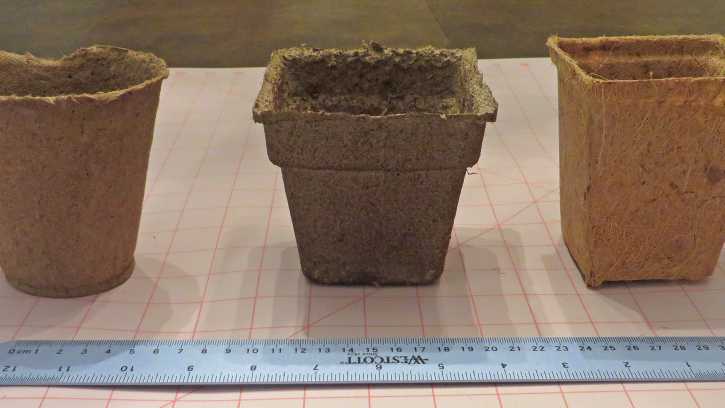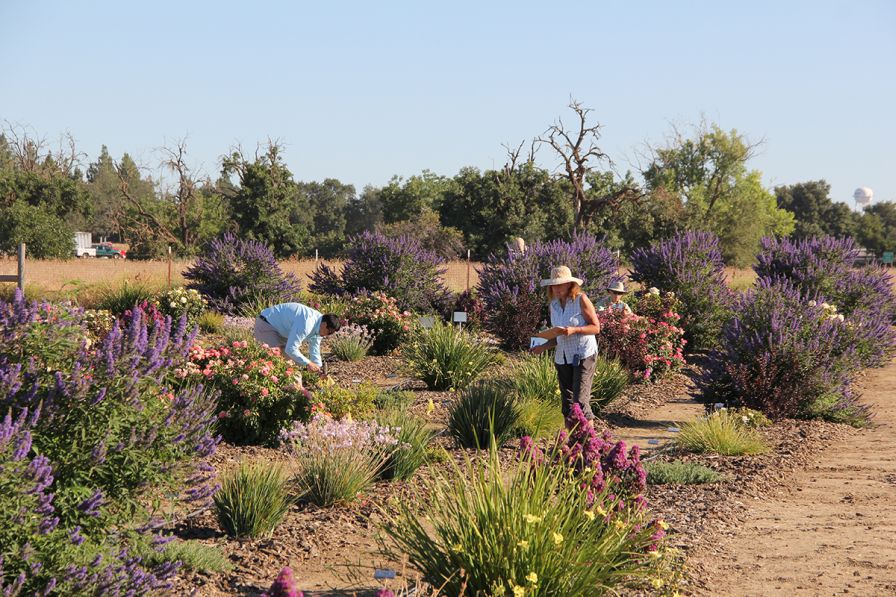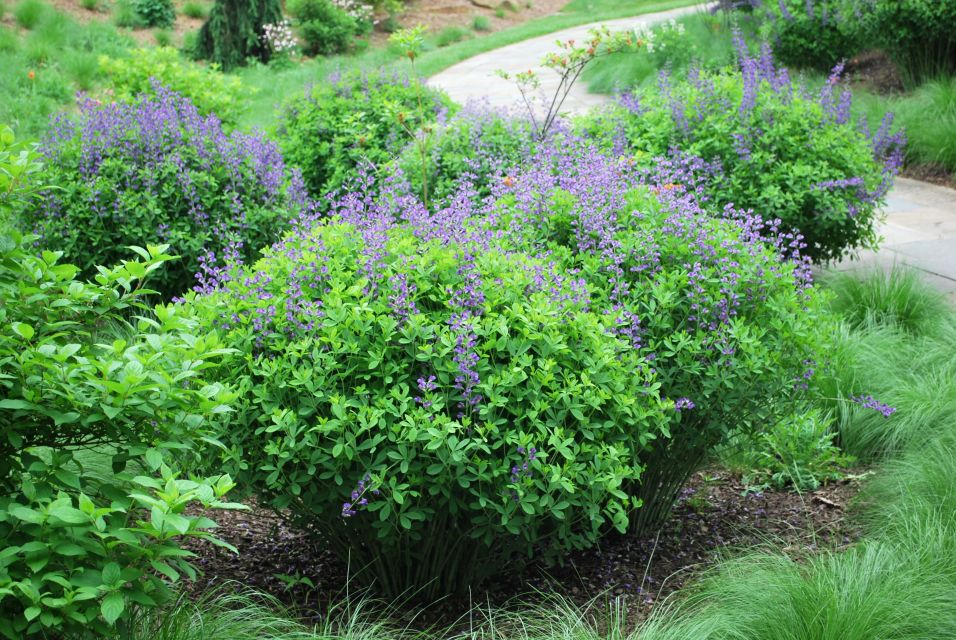Research Aims to Shed Light on Biodegradable Plastic Containers

From left, biodegradable containers made from wood pulp fiber, cow manure and coconut coir.
Growers can produce landscape plants sustainably with the help of biodegradable plant containers, but they may wonder whether these containers decompose quickly enough to avoid hindering plant growth.
A new study conducted by University of Georgia (UGA) researchers has determined that, under standard cultivation practices, certain types of biodegradable containers will decompose within a single growing season.
In a recently published article in the journal Water, Air and Soil Pollution, UGA scientists determined how industry-standard growing practices affected the decomposition of widely available biodegradable — or alternative — growing containers. This study was led by Bethany Harris while she earned her doctoral degree in horticulture under the guidance of professor Bodie Pennisi and soil microbiologist Mussie Habteselassie in the College of Agricultural and Environmental Sciences at the UGA Griffin campus.
“Under standard cultural and environmental conditions (fertilization, organic soil amendment, irrigation), alternative containers made of recycled paper, coconut fiber, and wood pulp fiber will degrade in the soil within a single season,” Pennisi says.
Pennisi, also a horticulture specialist with UGA Cooperative Extension, said although alternative containers made of animal- and plant-based byproducts have been available for more than 10 years, consumers and industry professionals have been slow to adopt these environmentally friendly options.
“One of the reasons is the perception that, when annual bedding flowers are installed in plantable containers in the landscape, the container does not degrade rapidly enough by the end of the growing season and thus necessitates manual removal of remnants,” Pennisi said.
Read more from the University of Georgia here.








